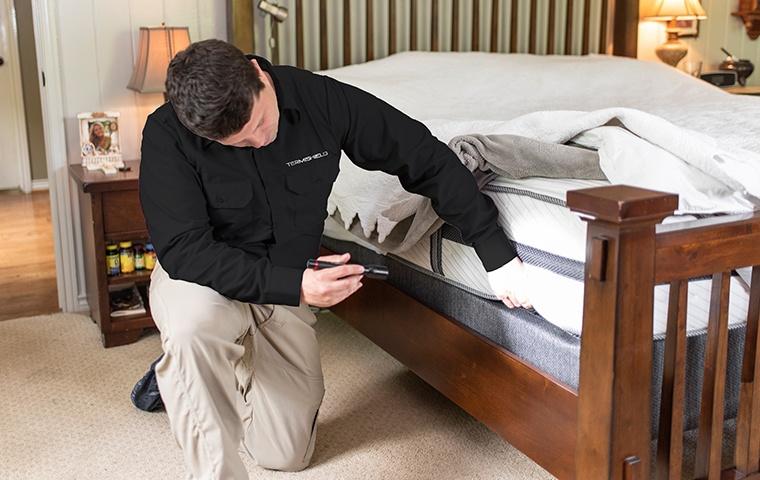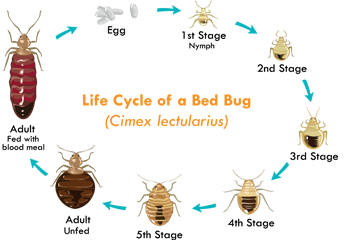Professional Kings Bug Control Services Cincinnati OH
Professional Kings Bug Control Services Cincinnati OH
Blog Article
Kinds Of Bug Control: Which Technique Is Right for Your Infestation?
When confronted with a parasite invasion, the selection of an appropriate method for pest control is critical in properly handling the situation. From chemical therapies to organic services, there exists a variety of approaches that can be utilized to resolve different sorts of bugs. Each method features its own set of benefits and factors to consider, making the decision-making process a nuanced one. Understanding the subtleties of each strategy and assessing their compatibility with the specific bug infestation available is necessary for accomplishing long-term success in bug management. By checking out the various kinds of insect control approaches offered, people can make informed decisions customized to their distinct circumstances, ensuring a more effective and lasting end result in insect obliteration.
Chemical Parasite Control
Chemical pest control involves the use of synthetic or naturally derived chemicals to take care of and get rid of pest populations effectively. This technique is frequently made use of in farming, forestry, and residential setups to combat a vast array of bugs, including rodents, insects, and weeds. Using chemical pesticides can offer quick and targeted services to pest infestations, making it a popular choice for numerous individuals and companies.
One of the key benefits of chemical pest control is its ability to swiftly remove bugs, minimizing the danger of damages to crops, home, and human health and wellness. By utilizing specific chemicals that target certain bugs, this technique can successfully control infestations while decreasing damage to helpful microorganisms and the atmosphere when applied appropriately.
Nevertheless, making use of chemical parasite control likewise raises worries regarding prospective unfavorable effects on non-target species, water resources, and human health and wellness. It is critical to comply with security standards, apply chemicals sensibly, and think about alternative bug control approaches to minimize these risks and make certain sustainable parasite administration techniques.
Biological Parasite Control
Biological bug control, also understood as biocontrol, utilizes living microorganisms to manage and minimize parasite populations normally. This technique uses the power of nature to control bugs without the need for synthetic chemicals. Biocontrol can involve the intro of all-natural enemies of the bug varieties, such as pathogens, parasites, or predators, to suppress bug populaces. By utilizing the insect's natural killers or virus, organic pest control provides a eco-friendly and sustainable remedy to pest monitoring.

Mechanical Bug Control
Utilizing physical and hand-operated approaches to take care of bug populations, mechanical parasite control provides an alternative technique that does not depend on the use of living microorganisms or synthetic chemicals. This approach involves making use of obstacles, catches, or other tools to physically prevent or eliminate insects. By obstructing insect access points or establishing catches to catch them, mechanical insect control can properly reduce problems without introducing chemicals into the atmosphere.
One usual example of mechanical insect control is using mesh screens on home windows and doors to stop bugs from getting in structures. This easy yet efficient approach serves as a physical barrier, maintaining parasites out while enabling proper ventilation. Furthermore, gadgets like mousetraps, fly swatters, and ultrasonic repellents drop under the mechanical parasite control category.
While mechanical pest control techniques can be labor-intensive and need routine surveillance and maintenance, they supply a environmentally friendly and sustainable solution for managing pest infestations. By combining different mechanical techniques, residential property owners can produce a thorough parasite control strategy that minimizes dependence on chemical pesticides.
Physical Insect Control

Some usual physical insect control approaches include using barriers such as internet or displays to avoid parasite entry, catches to capture and eliminate parasites, and hand-picking to physically eliminate parasites from plants or structures. In addition, techniques like warm therapies can be used to manage bugs like bed pests by raising the temperature level to degrees that are lethal to the bugs.
Physical parasite control is particularly helpful in incorporated insect administration (IPM) techniques, where numerous Discover More parasite control methods are integrated for efficient insect monitoring while minimizing making use of chemicals. By click over here using physical bug control strategies, people can effectively resolve pest problems with minimal environmental effect.
Integrated Parasite Management
When carrying out physical parasite control approaches as component of parasite monitoring approaches, Integrated Insect Monitoring (IPM) arises as an extensive method that leverages different methods to successfully regulate pest populaces. IPM concentrates on long-lasting prevention of pests with a combination of biological, cultural, physical, and chemical devices customized to details parasite concerns. By integrating numerous control tactics, IPM aims to minimize the threats connected with bugs while likewise lowering reliance on chemical remedies.
One secret facet of IPM is the emphasis on monitoring and assessing pest populaces to establish the most ideal control approaches. This proactive approach bug control services permits very early intervention and targeted approaches, bring about a lot more efficient parasite administration. Furthermore, IPM promotes eco friendly practices by focusing on non-chemical control methods and just making use of chemicals as a last resort.
Final Thought

By making use of the bug's natural predators or pathogens, organic bug control provides a ecologically friendly and sustainable solution to pest monitoring. - Kings cincinnati pest control
Making use of hands-on and physical methods to take care of bug populations, mechanical parasite control supplies a different method that does not rely on the usage of living organisms or artificial chemicals.An efficient strategy to handling bug populations without counting on chemical or biological approaches involves the usage of physical insect control strategies.When executing physical insect control methods as component of pest administration strategies, Integrated Bug Management (IPM) arises as a comprehensive technique that leverages various strategies to efficiently regulate pest populations. Chemical bug control entails the use of chemicals, biological insect control utilizes all-natural predators, mechanical insect control entails physical barriers, physical bug control includes trapping or eliminating bugs, and incorporated insect administration incorporates multiple approaches for an all natural method to pest control.
Report this page